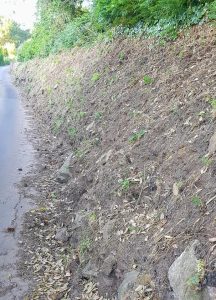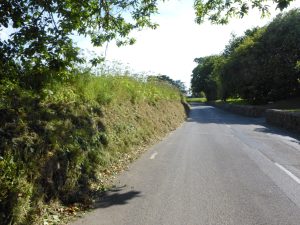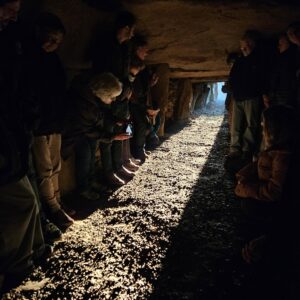
E
By Bob Tompkins of the Branchage Action Group
Change is inevitable and frequently needed to improve the health of our environment and in turn to bring benefits to wildlife and enhance the quality of our lives.
One such alteration has been a much needed update as to how the twice yearly Branchage is applied by recognising the Island’s increased population and changes in transportation, farming and climate since its introduction in 1914. Brought in to ensure that hedges and banques had their vegetation trimmed back to allow safe passage for carts, pedestrians and cyclists, the world has moved on and with the arrival of the motor car changes here have not always had a positive effect.
Over recent years the excessive and poorly operated use of flails and strimmers to carry out the Branchage has had a devastating effect on plant species and wildlife, resulting in the loss of biodiversity and damage to the environment.

The Branchage is a time consuming and costly activity. Co-operation in developing new techniques to reduce costs and the time taken has been key to the success in the implementation of the new best practise methods. These have been drawn up by the Branchage Action Group in the form of an advisory leaflet to improve the health of our hedges and banques and to protect the wildlife and plants contained within them.
Paramount in this has been the hard work undertaken by the Island’s farmers in developing ways of reducing environmental damage while achieving an effective and efficient cut. By reviewing the way in which machinery is used, reducing the depth of cut and the removal of the cuttings, a transformation of the Island’s green corridors has begun to be achieved.
One of the results of this has meant that farmers have also been able to further their accreditations for LEAF, “Linking Environment and Farming”, to help develop more sustainable food and farming methods and preserve and improve the environment so vital for wildlife and plants to flourish.
Sadly, one demographic that has generally failed to embrace the new best practices have been private landowners, many of whom still insist on cutting hard back to the ground and by doing so increasing soil erosion, the exposure and dislodging of stones, destruction of habitats and wildlife … which, in their view, is just keeping things tidy. It seems that many are not aware of the changes or chose to ignore them. Ignorance is never bliss, nature is not a municipal park and is never tidy.
As a result of the Covid 19 lockdowns, there has been an increase in the home use of herbicides, pesticides and strimmers, all of which are used without thought as to their negative effects on the environment or wildlife. An example of this has been a marked increase in the number of Hedgehogs killed or injured as a result of not simply checking hedge and bank lines before spraying or strimming. The use of herbicides on pavements should be discouraged as this can affect field entrances and nearby water courses. On a non-commercial basis, a well-balanced and cared for garden and countryside does not need chemicals to keep it healthy, as nature will provide the equilibrium.
Part of the drive of all these ‘behind the scenes’ activities has been the imminent arrival of the much needed new Wildlife Law that will create a duty of care for public bodies to promote and protect biodiversity across the Island. It is hoped that it will also close a number of loopholes in the previous law that allowed disturbance to wildlife, damage to the environment and it is hoped to increase the effectiveness and adherence to the new law.
To find the Branchage Action Group ‘Best Practises’ leaflet, it is linked to the Government website.

As a result of the pandemic there will be no Britain in Bloom this year. In its place the RHS are running Community Award 2021 and the Branchage Action Group has been nominated in two of the ‘green solutions’ categories, each of which should reflect the activities and projects of the Group. These are ‘nature friendly gardening’ and ‘green solutions’. If the group are successful it will not just be their award, but the award of all those that made it possible.




